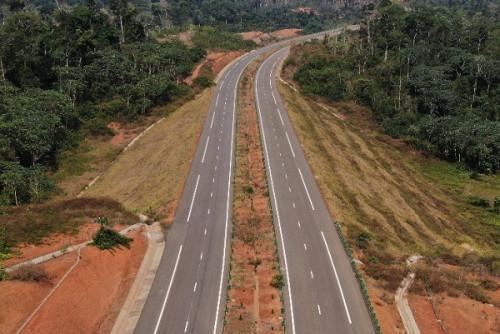
The long-awaited Yaoundé-Douala highway, connecting Cameroon’s two principal cities, is now projected to be completed in 2031—17 years after the initial construction began.
The revised timeline was disclosed in the government’s 2026–2028 medium-term budget and economic planning document.
Construction on the first 60-kilometre segment of the highway commenced in 2014. Since then, the project has undergone numerous delays due to a combination of technical, financial, and administrative challenges.
The decision to abandon the original public-private partnership (PPP) model in favour of direct public project management has been cited as one of the key factors contributing to the extended timeline.
At a high-level meeting hel
d on April 14, 2025, the Ministry of Public Works (MINTP) presented an update on the progress of this crucial infrastructure. The second phase of the project will span 141 km of main highway and 30.9 km of interconnecting ramps, with an estimated cost of 1,072 billion CFA francs including tax—or 899.3 billion CFA francs excluding tax. However, the final cost remains contingent on an environmental impact study currently in progress.
“The route was selected to minimise destruction of private property and reduce the burden of compensation,” MINTP officials noted, highlighting the significant financial impact of land expropriation on the project. As of April 2025, only 5 km of the first 32 km earmarked for development had been cleared.
The government will now oversee the entire process, from financing to implementation, hoping to prevent the delays and cost overruns that plagued the first phase. The initial phase saw four amendments and a budget increase from 284 to 350 billion CFA francs.
To fund the second phase, Cameroon is negotiating with Standard Chartered Bank of London and the Exim Bank of China, alongside domestic contributions. The aim is to secure funding for the first 40 km segment by August 2025.
China First Highway Engineering Corporation (CFHEC) has been appointed as the lead contractor, with geotechnical work entrusted to Labogenie, Cameroon’s state-run soil analysis institution. A search for a project management assistant is underway, following a call for expressions of interest launched in March 2025.
Despite the protracted delays, the highway remains a critical infrastructure investment. Once completed, it is expected to significantly boost economic activity along the Yaoundé-Douala corridor, the country’s busiest and most strategic transport route.



